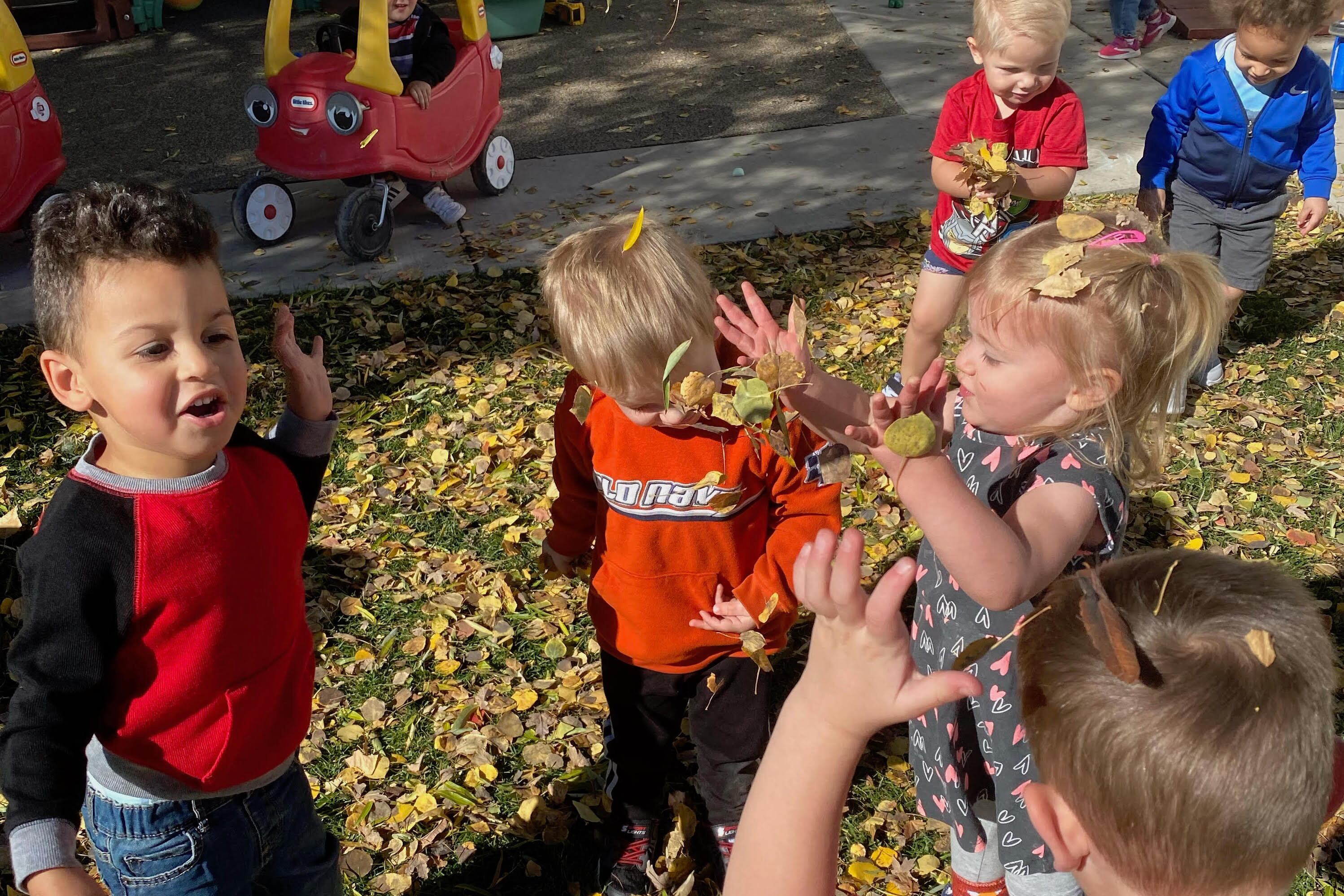A new coalition of Colorado groups wants to reform the state tax code to pump more public money into child care and other types of caregiving, including K-12 education, nursing, support for people with disabilities, and hospice.
The Colorado Children’s Campaign and the Colorado Statewide Parent Coalition are leading the Growing Our Future Coalition, which consists of 18 groups as well as parents and care providers. The coalition held a virtual kickoff meeting in February and another one Thursday. The group’s first official meeting will be in April.
“Broadly speaking, we would like to see caregiving, in all the ways that it shows up for children and families, to be respected, prioritized, and funded,” said Melissa Mares, director of Early Childhood Initiatives at the Colorado Children’s Campaign, during Thursday’s meeting.
The coalition’s launch comes at a time of change and trepidation across Colorado’s child care landscape. The state is working to roll out a major expansion of tuition-free preschool after three years of a pandemic that exacerbated workforce shortages and strained providers financially. Parents report desperate struggles to find child care.
Leaders of the new coalition said they’re still deciding what tax code changes they’ll propose, but they hope to bring forth a statewide ballot initiative in 2024 or 2026. They said they’re still working to connect with other Colorado groups working on fiscal reform.
The idea for the Growing Our Future Coalition originated in 2021 when the Colorado Children’s Campaign and the Colorado Statewide Parent Coalition won grants from two groups of national funders to pursue systemic changes in child care and related fields.
“One of our core guiding principles has been [that] if we are not uncomfortable about the size of transformation we’re talking about, we’re not thinking big enough,” Mares said during the kick-off.
In an interview with Chalkbeat on Friday, Mares said the coalition could consider a range of possible tax code changes, including changing Colorado’s flat income tax — currently 4.4% — to a progressive income tax that asks wealthier families to pay a larger proportion of their earnings than lower-income families. Other possibilities include new taxes on second homes or certain services.
Mares said these changes would not necessarily require a repeal of the state’s Taxpayer Bill of Rights, a 1992 constitutional amendment that requires voter approval for all new taxes and limits increases in state revenue to the rates of population growth and inflation. Known as TABOR, this provision requires the government to return money to taxpayers when a strong economy produces a surplus, rather than save it or invest in new programs.
Mares said by asking voters to approve any changes, the coalition’s work would fit with the spirit of TABOR.
Colorado voters have resisted many ballot measures that would raise taxes or hold onto TABOR refunds to fund education, such as Proposition CC and Amendment 73. They’ve also voted twice to reduce the income tax rate.
But they also approved a nicotine tax to fund universal preschool, limited deductions for high-earners to pay for school lunch, and agreed to give up some tax refunds to pay for affordable housing.
Mares said coalition leaders hope to overcome potential voter resistance to tax code changes by including lots of people and organizations in the effort.
“One of the things we bring to the table is a vision for a much, much broader coalition than has ever tried before on tax reform measures.”
At Thursday’s kick-off meeting, which included written materials and interpretation in Spanish and Dari, a broad definition of caregiving was on display, with leaders talking about including prenatal to end-of-life caregivers in their work.
These organizations currently make up the coalition:
- Bell Policy Center
- Black Child Development Institute - Denver
- Clayton Early Learning
- Colorado Association of Family Child Care
- Colorado Children’s Campaign
- Colorado Statewide Parent Coalition
- Colorado Fiscal Institute
- Council for a Strong America
- Denver Indian Family Resource Center
- Early Childhood Council Leadership Alliance
- Early Milestones Colorado
- Family Resource Center of Roaring Fork Schools
- Raise Colorado Coalition
- Rose Community Foundation
- Small Business Majority
- The Spring Institute for Intercultural Learning
- Valley Settlement
- Women’s Foundation of Colorado
- Individuals, including parents, child care providers, a community leader, and a home visitor
Ann Schimke is a senior reporter at Chalkbeat, covering early childhood issues and early literacy. Contact Ann at aschimke@chalkbeat.org.






